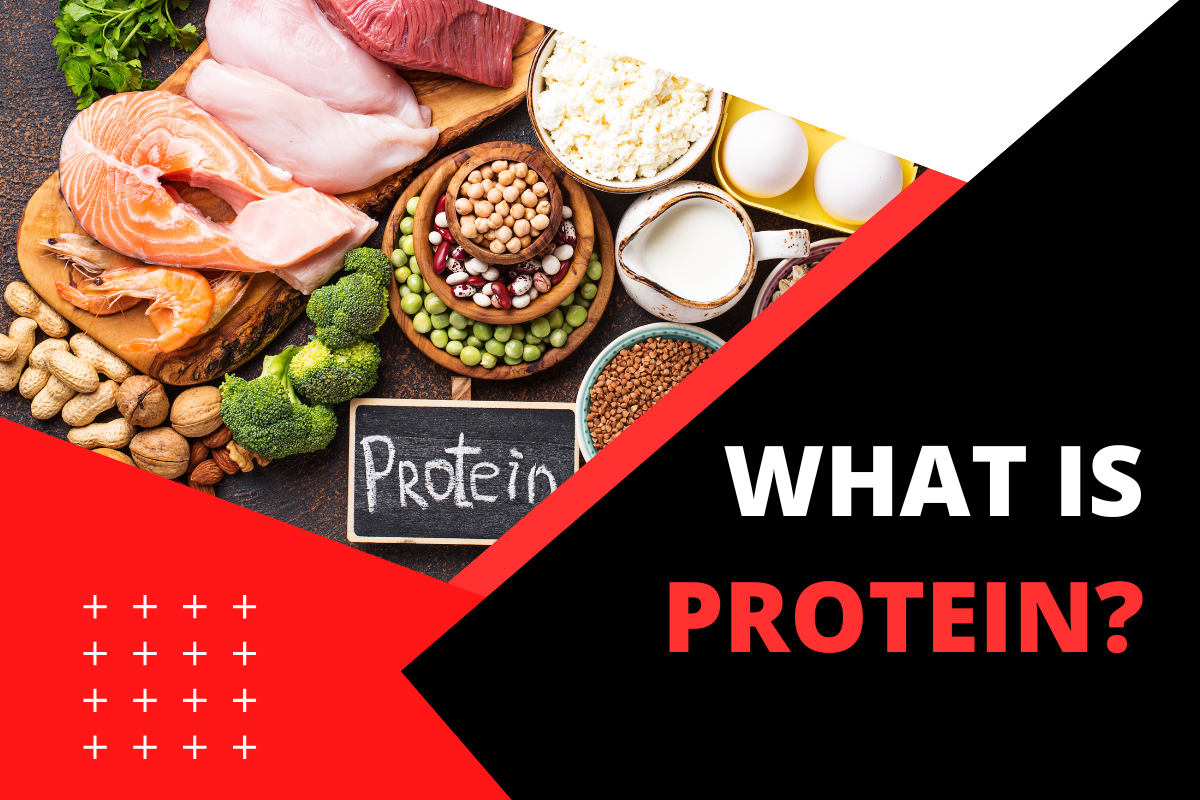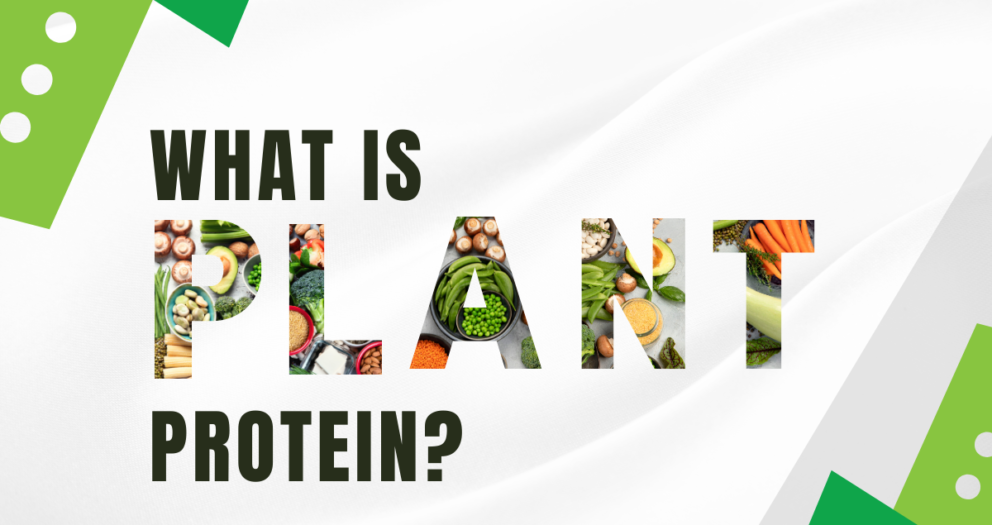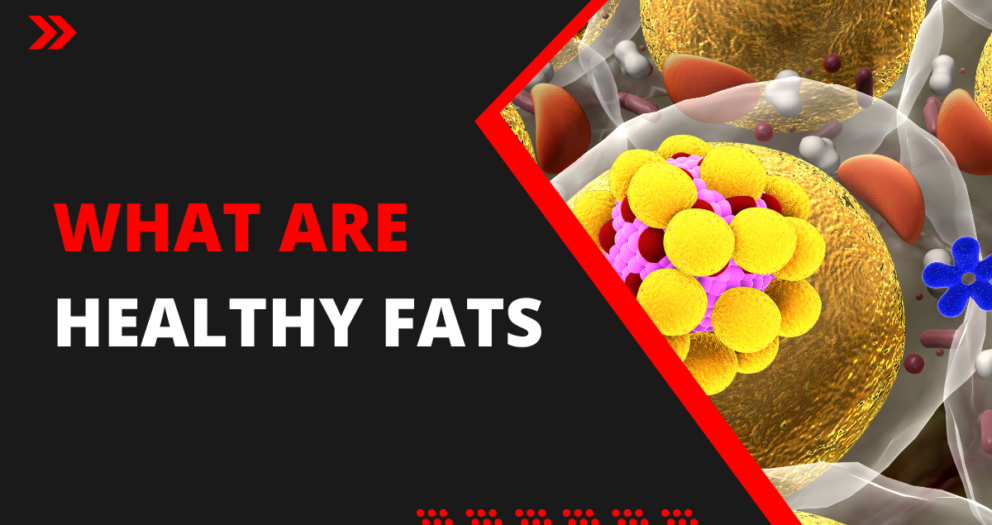Proteins are very complex molecules that play a critical role in our body. Most of the muscle tissue, many functions and regulation of processes in our body directly depends on proteins.
What Are Proteins Made of?
The proteins are made of amino acids. The same way a house is made of metal, sand, bricks, steel, cement, glass, etc. A protein is similarly made of amino acids. Although there are many amino acids found in nature, only 20 amino acids make up all proteins in our body. Depending on the numbers of amino acids, their sequence and their repetitions in the structure of the proteins, there is a possibility to make unlimited types of proteins. In other words, these 20 individual amino acids can create unlimited different types of proteins.
What are Amino Acids?
From a chemistry perspective, amino acids are organic molecules that contain a carboxylic acid group (COOH) and an amino group (N-H) attached to a long chain of carbon and hydrogen atoms. In order to synthesize proteins, our body needs to have access to all these 20 amino acids. However, our body can make only 11 of these amino acids, the other 9 amino acids need to come from food that we eat. The 9 amino acids that our body needs to get from our food and it can not make by itself are called essential amino acids. The 11 amino acids that our body can produce, are non-essential amino acids.
Essential Amino Acids
Here are the 9 essential amino acids that our body can not produce:
| leucine | isoleucine | valine | histidine | lysine |
| methionine | phenylalanine | threonine | tryptophan |
Non-Essential Amino Acids
| alanine | arginine | asparagine | aspartic acid |
| cysteine | glutamic acid | glutamine | glycine |
| proline | serine | tyrosine |
Daily Protein Intake Requirement
Proteins make up a variety of functions and parts in the body. These include: antibodies, contractile proteins, enzymes, hormonal proteins, structural proteins, storage proteins, and transport proteins. Due to the vital importance of proteins in our health, fitness and longevity (life and health span) it is critical that we consume enough proteins on a daily basis. Dietary Guidelines for Americans recommend a daily protein intake of 0.8 grams per kilogram of body weight for most adults. However, more and more clinical and scientific research are suggesting that this recommended dosage is not enough, and instead adults need to consume around 2 g of protein per kilogram of body weight. So for instance, if you weigh 80 kg, you will need to consume a total of 160 g of proteins in order to maintain muscle mass and stay fit.
When it comes to measuring the amount of proteins in a meal, it should be noted only a percentage of a steak, chicken or a fish filet is protein. For instance, 100 g of a ribeye steak has only 24 g of protein. Therefore, if you weigh 80 kg, and you have a 200 g ribeye steak, you have received only 48 g of protein. Your body still needs to receive 112 g (160 – 48 = 112 g ) more protein from any other dietary source in the same day.
To reiterate our motto:
There is no superfood. Healthy foods need to be consumed in moderation. Unhealthy food needs to be avoided completely.
The same principles apply to proteins. It is always highly recommended that organic sources of proteins are consumed. For animal-based proteins, it is advisable to consume grass-fed organic lamb or beef since the inorganic animal proteins can contain a considerable amount of harmful chemicals such as antibiotics, growth hormones and pesticides transferred to the meat through the grains they feed to the animals. The same concept applies to salmon, and other types of fish where the consumption of organic wild fish is highly superior compared to the farm-raised fish. The amount of PCBs and other harmful chemicals are occasionally reported to be significantly higher compared to the organic wild fish. The source of these contaminations are the unnatural feed that they provide to the farmed fish.
Pasture-raised organic eggs are one of the best and highly recommended sources of protein one can consume. There used to be a general misconception that eggs are high in cholesterol, and therefore should be avoided but it has been long proven by many studies that there is little to no correlation between the LDL cholesterol in the blood and the cholesterol in the food we consume. The beneficial and unique range of proteins in eggs renders it one of the best sources of proteins even better than chickens.
Conclusion:
Proteins are by far the most important macronutrients that our body needs in order to function properly and stay fit and healthy. A healthy average person needs to consume 2 g per each kg of their body weight in order to maintain muscle mass. The ratio of muscle mass to the overall weight is one of the main factors of health and life span and is critical to pay attention to. This is mostly due to the fact that we lose muscle as we grow older. Even in weight management dietary plans, aiming at caloric restriction (CR) the amount of consumed protein should not be reduced, thus instead of proteins the restrictions should be applied to the amount of fats and carbohydrates. The best sources for protein are grass-fed organic beef and lamb, pasture raised chicken, organic eggs, wild fish and proteins from organic legumes. The important factor related to plant proteins is that organic plants are extremely healthier sources of protein due to lack of harmful pesticides that are used during farming. Please note that the above recommendations are general advice for average people not considering any medical or special conditions. Each individual nutritional needs can vary, and dietary recommendations should be based on individual health conditions and requirements. For specific dietary advice, it’s best to consult with a healthcare professional if you suffer from any specific medical conditions.
-
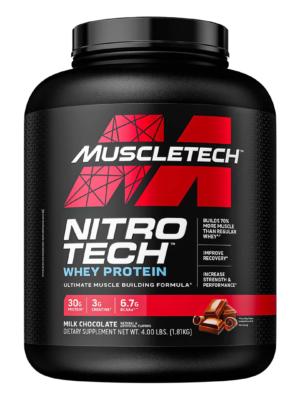 ExpressMuscle Tech Whey Protein 1.81kg – Milk Chocolate 4lb for Athletes Looking for More Muscle, Strength, and Performance | Dubai,UAEProduct on saleAED155.00
ExpressMuscle Tech Whey Protein 1.81kg – Milk Chocolate 4lb for Athletes Looking for More Muscle, Strength, and Performance | Dubai,UAEProduct on saleAED155.00 -
 ExpressUSN SA Fast Grow Anabol GH Chocolate All-in-one Protein Powder Shake (4kg): Workout-Boosting, Anabolic Protein Powder for Muscle Gain| Dubai,UAEProduct on saleAED235.00
ExpressUSN SA Fast Grow Anabol GH Chocolate All-in-one Protein Powder Shake (4kg): Workout-Boosting, Anabolic Protein Powder for Muscle Gain| Dubai,UAEProduct on saleAED235.00 -
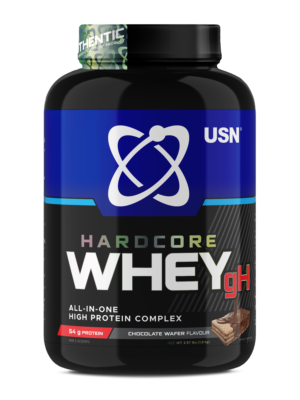 ExpressUSN Hardcore Whey GH 1.8kg Chocolate Waffle The all-in-one lean mass gainer with premium whey protein, creatine and a testo booster.Product on saleAED190.00
ExpressUSN Hardcore Whey GH 1.8kg Chocolate Waffle The all-in-one lean mass gainer with premium whey protein, creatine and a testo booster.Product on saleAED190.00 -
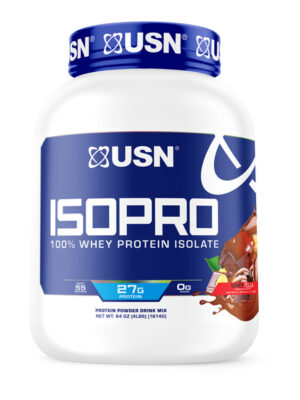 ExpressUSN Iso Pro 100% Whey Isolate – 4lb WheytellaProduct on saleAED299.00
ExpressUSN Iso Pro 100% Whey Isolate – 4lb WheytellaProduct on saleAED299.00 -
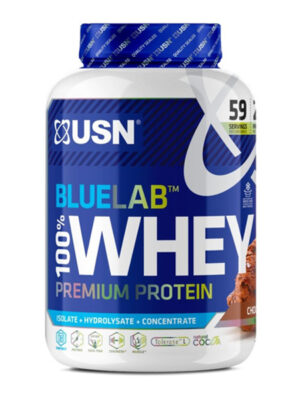 ExpressUSN UK Blue Lab Whey Chocolate 2kg, Premium Whey Protein Powder, Scientifically-formulated, High Protein Post-Workout Powder Supplement with Added BCAAsProduct on saleAED220.00
ExpressUSN UK Blue Lab Whey Chocolate 2kg, Premium Whey Protein Powder, Scientifically-formulated, High Protein Post-Workout Powder Supplement with Added BCAAsProduct on saleAED220.00 -
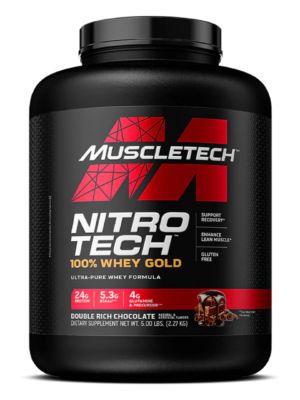 ExpressMuscle Tech-Nitro Tech 100% Whey Gold Double Rich Chocolate 5lb In Dubai,UAEProduct on saleAED199.00
ExpressMuscle Tech-Nitro Tech 100% Whey Gold Double Rich Chocolate 5lb In Dubai,UAEProduct on saleAED199.00 -
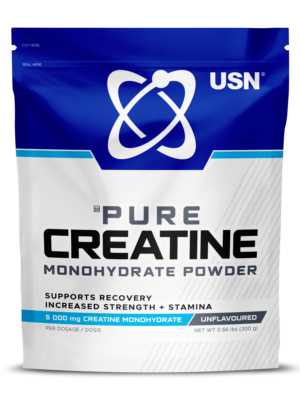 ExpressUSN Pure Creatine Monohydrate 300g Unflavoured To Support Muscle Performance, Growth And Power| Dubai,UAEProduct on saleAED95.00
ExpressUSN Pure Creatine Monohydrate 300g Unflavoured To Support Muscle Performance, Growth And Power| Dubai,UAEProduct on saleAED95.00 -
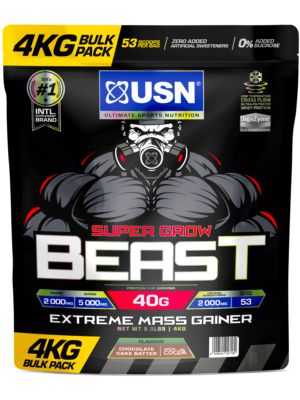 ExpressUSN Super Grow Beast 4kg Chocolate High Calorie Mass Gainer Protein Powder for extreme muscle strength and Weight Gain, With Added Creatine and Vitamins In Dubai,UAEProduct on saleAED159.00
ExpressUSN Super Grow Beast 4kg Chocolate High Calorie Mass Gainer Protein Powder for extreme muscle strength and Weight Gain, With Added Creatine and Vitamins In Dubai,UAEProduct on saleAED159.00 -
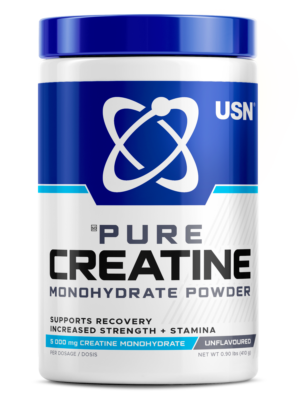 ExpressUSN SA Pure Creatine Monohydrate 410g Unflavoured To Support Muscle Performance, Growth And Power| Dubai,UAEProduct on saleAED109.00
ExpressUSN SA Pure Creatine Monohydrate 410g Unflavoured To Support Muscle Performance, Growth And Power| Dubai,UAEProduct on saleAED109.00


